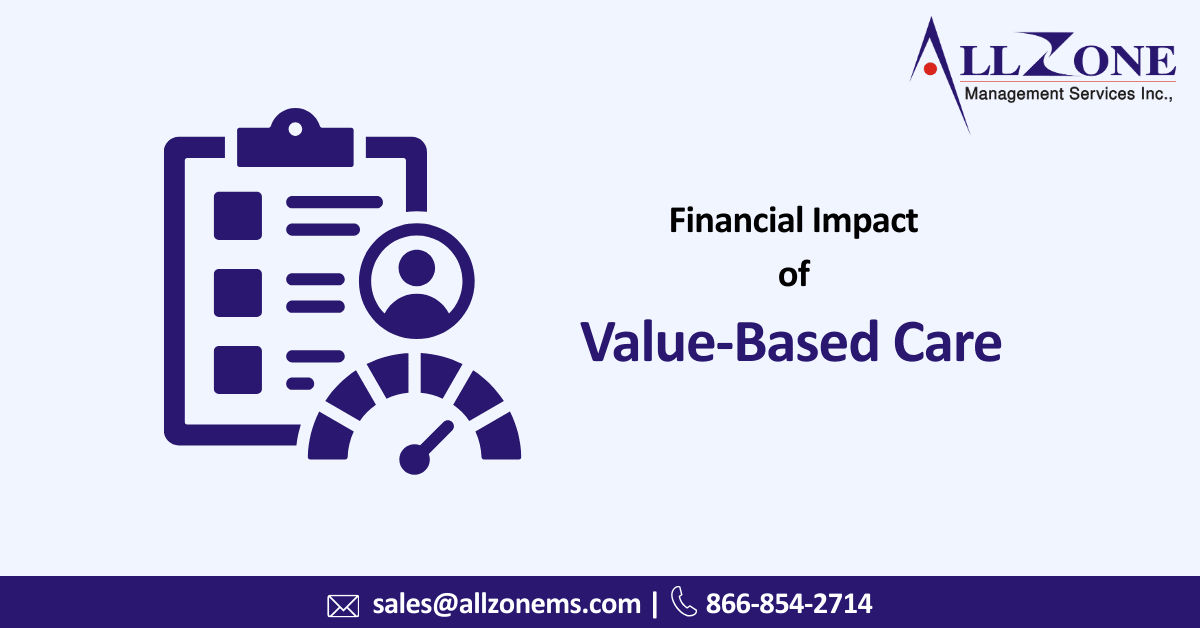The financial impact of VBC is profound, necessitating adjustments in how providers approach and manage their financial operations to align with this new model of care.
The healthcare industry is shifting towards value-based care (VBC), a model that prioritizes high-quality care while aiming to lower costs. In contrast to the traditional fee-for-service model, value-based care links compensation to the quality of patient outcomes and incentivizes healthcare providers for delivering efficient and effective care.
This change in healthcare economics presents both opportunities and challenges for providers, requiring a comprehensive reevaluation of their financial strategies and operational practices.
Financial Benefits of Investing in Advanced Systems:
Switching to value-based care models demands that healthcare providers embrace new methods for measuring and reporting outcomes. This involves investing in data analytics and health information technology systems to accurately monitor and document patient outcomes and costs.
Such investments are crucial as they help providers pinpoint areas for enhancement, assess the effectiveness of the care they provide, and demonstrate the value of their services to payers. The financial benefits of these investments typically emerge through better patient health outcomes and decreased unnecessary spending.
Revenue Growth and Financial Risks in Value-Based Care:
A key feature of value-based care (VBC) is the alignment of incentives between payers and providers. Through incentive programs, VBC can boost revenue for providers who meet or surpass quality and cost benchmarks. However, this model also introduces potential financial risks, such as penalties for not meeting established performance standards.
Transitioning from a volume-based to a value-based approach demands a delicate balance between managing costs and improving care quality, necessitating a sophisticated approach to financial management within healthcare organizations. The financial impact of VBC is profound, requiring healthcare organizations to adapt their financial strategies to navigate these new dynamics effectively.
Reducing Costs and Improving Quality with Value-Based Care:
Value-based care offers a patient-centered approach aimed at improving health outcomes and enhancing satisfaction. By aligning financial incentives with goals such as preventative care, patient education, and chronic disease management, it reduces the reliance on costly interventions and hospitalizations. This approach has the potential to foster a more sustainable healthcare system that provides high-quality care at lower costs. The financial impact on healthcare providers under value-based care is significant.
It demands a shift in operations, investment in technology, and a commitment to continuous improvement and accountability. Although the transition poses challenges, it also presents opportunities for providers to stand out in a competitive market through exceptional patient care. Successfully embracing value-based care can result in a financially sustainable healthcare system and a healthier population, making it a crucial focus for providers dedicated to innovation and excellence.
Why Outsource Radiology Revenue Cycle Management Services to Allzone MS?
Outsourced radiology revenue cycle management (RCM) services can offer significant benefits to healthcare providers. Here are some key reasons why:
1. Cost Reduction:
-
- Reduced overhead: Outsourcing can eliminate the need for in-house staff, training, and infrastructure related to RCM.
- Improved efficiency: Specialized RCM providers like Allzone MS often have advanced technologies and processes that streamline operations and reduce errors.
2. Focus on Core Competencies:
-
- Improved patient care: By outsourcing RCM, healthcare providers can concentrate on delivering high-quality patient care.
- Strategic initiatives: Resources can be allocated to other strategic initiatives, such as expanding services or investing in new technologies.
3. Risk Mitigation:
-
- Compliance: Allzone MS has expertise in navigating complex regulatory requirements, reducing the risk of penalties and fines.
- Data security: They often have robust data security measures in place to protect patient information.
By outsourcing radiology RCM services to Allzone MS, healthcare providers can benefit from cost savings, improved efficiency, enhanced expertise, and a stronger focus on core competencies. This can ultimately lead to better financial performance and improved patient outcomes.

